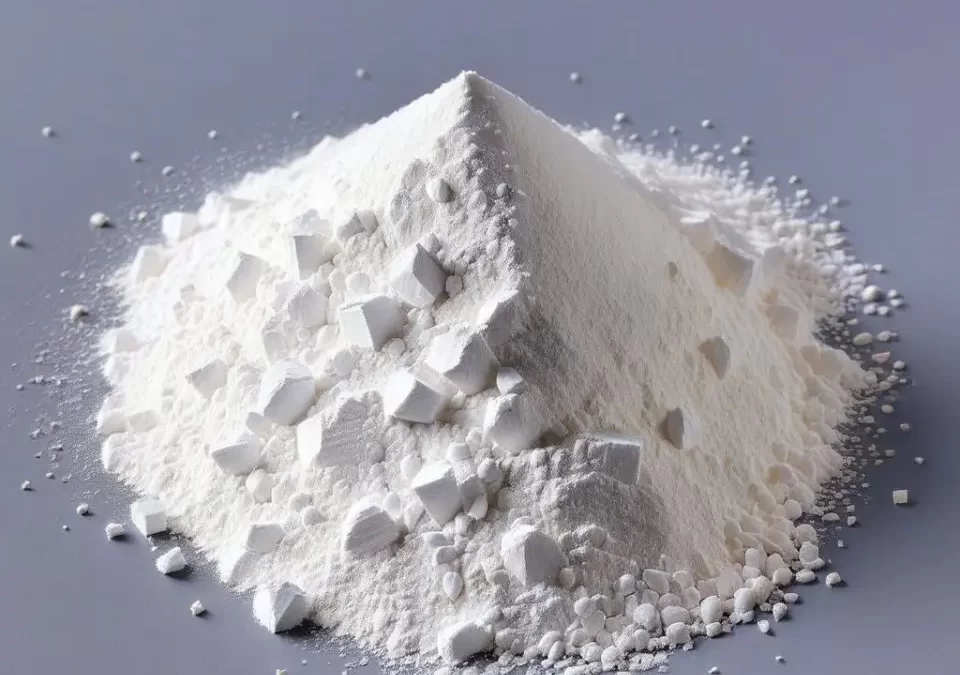Calcium stearate, a calcium salt of stearic acid, is a remarkable compound that has found its way into a myriad of industries, particularly in pharmaceuticals and plastics. This versatile substance is celebrated for its multifunctional properties, which include serving as a lubricant, emulsifier, and stabilizer. The calcium stearate uses are not only integral to enhancing product quality but also essential for ensuring safety and compliance in various formulations. This blog aims to explore the diverse applications of calcium stearate, its significance in multiple sectors, and the regulatory framework governing its use in India, providing a comprehensive overview for industry professionals and consumers alike.
Understanding Calcium Stearate
What is Calcium Stearate?
Calcium stearate is an organic compound with the chemical formula Ca(C18H35O2)2. It appears as a white, waxy powder that is insoluble in water but soluble in organic solvents. This compound is derived from the reaction of stearic acid with calcium hydroxide.
Key Properties of Calcium Stearate
The properties of calcium stearate make it a valuable ingredient across various applications:
- Lubricating Agent: Its ability to reduce friction makes it ideal for use in manufacturing processes.
- Stability Enhancer: Calcium stearate provides thermal stability, crucial for heat-sensitive formulations.
- Non-toxic: Considered safe for use in food and pharmaceutical products when compliant with relevant regulations.
These attributes contribute to its broad applicability in industries ranging from pharmaceuticals to plastics.
Calcium Stearate Uses in Pharmaceuticals
In the pharmaceutical sector, calcium stearate is primarily used as an excipient, which is a substance formulated alongside the active ingredient in a medication.
Functions of Calcium Stearate in Pharmaceuticals
- Lubrication: As a lubricant, calcium stearate facilitates the smooth flow of powders during tablet compression. This prevents clumping and ensures uniform distribution of the active pharmaceutical ingredients (APIs).
- Stabilizer: It acts as a stabilizer in emulsions and suspensions, enhancing the consistency and effectiveness of liquid medications.
- Thickening Agent: In creams and ointments, calcium stearate improves texture and consistency, providing a smooth application experience for consumers.
Regulatory Compliance in Pharmaceuticals
In India, the use of calcium stearate in pharmaceuticals is regulated by the Central Drugs Standard Control Organization (CDSCO). This agency ensures that pharmaceuticals meet safety and quality standards, allowing manufacturers to incorporate calcium stearate confidently.
Calcium Stearate Uses in Plastics
Calcium stearate is equally important in the plastics industry, where it enhances the properties of various plastic products.
Role in Plastic Manufacturing
- Processing Aid: Calcium stearate serves as a lubricant, reducing friction during the processing of plastics. This improves the flow characteristics of materials like PVC (polyvinyl chloride).
- Heat Stabilization: It acts as a thermal stabilizer, preventing the degradation of plastics during processing and preserving their mechanical properties.
- Release Agent: Calcium stearate facilitates the easy removal of molded parts from machinery, enhancing production efficiency and reducing downtime.
Regulatory Standards for Plastics
The use of calcium stearate in plastics is subject to regulations by the Bureau of Indian Standards (BIS), which ensures that industrial chemicals meet safety and quality requirements. This oversight is crucial for protecting consumers and promoting environmental sustainability.
Calcium Stearate in the Food Industry
Beyond pharmaceuticals and plastics, calcium stearate is also employed in the food industry.
Functions in Food Products
- Emulsifier: Calcium stearate helps maintain a uniform distribution of ingredients in processed foods, enhancing texture and flavor.
- Anti-caking Agent: It prevents clumping in powdered food products, ensuring a consistent texture and improving shelf-life.
- Stabilizer: Calcium stearate enhances the stability of emulsions in food items, contributing to their quality and safety.
Regulatory Compliance in Food Products
In India, the Food Safety and Standards Authority of India (FSSAI) regulates the use of calcium stearate in food products. This ensures that food-grade calcium stearate complies with safety standards, protecting consumers from potential health risks.
Environmental Considerations and Safety
While calcium stearate is widely recognized for its benefits, it is essential to consider its environmental impact and safety profile.
Safety Profile
- Non-toxic Nature: Calcium stearate is generally regarded as safe (GRAS) when used appropriately. It poses minimal health risks when consumed in food or used in pharmaceuticals.
- Biodegradability: The compound is biodegradable, which means it breaks down naturally and poses less risk to the environment compared to synthetic alternatives.
Best Practices for Handling
Manufacturers should adhere to best practices in handling and disposing of calcium stearate to minimize any potential environmental impact. Proper training and guidelines can help ensure safe use across industries.
Conclusion
In conclusion, calcium stearate is a vital compound with a wide array of applications spanning pharmaceuticals, plastics, and food industries. Its multifunctional properties as a lubricant, stabilizer, and emulsifier make it indispensable for enhancing product quality and performance. Additionally, compliance with regulatory standards set forth by organizations such as CDSCO and FSSAI ensures that calcium stearate is safe for use in various products.
As the demand for high-quality and safe products continues to grow, understanding the importance and applications of calcium stearate becomes increasingly critical for manufacturers and consumers alike. By leveraging its benefits while adhering to regulatory guidelines, businesses can contribute to innovation and sustainability in their respective industries.

